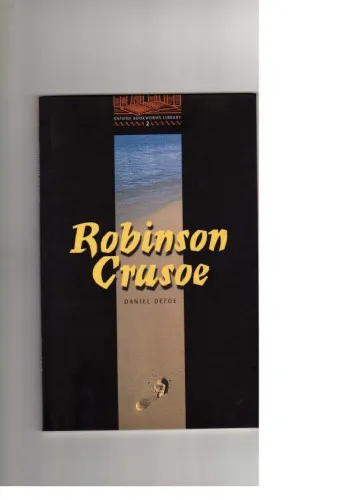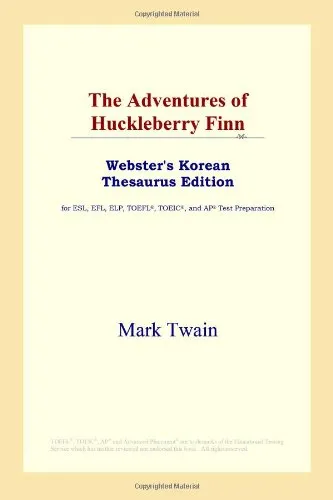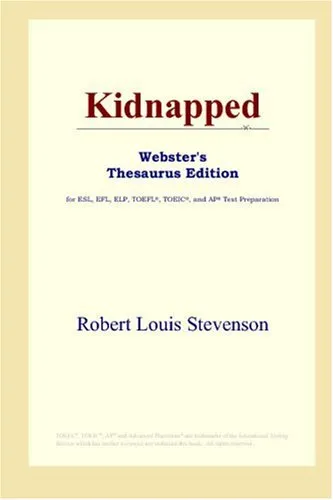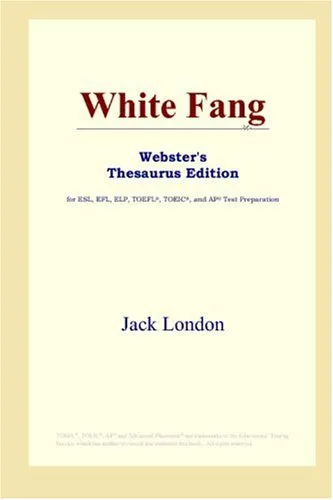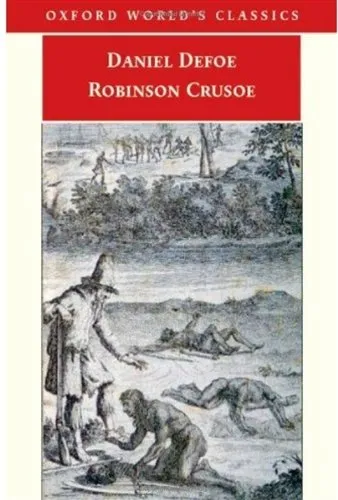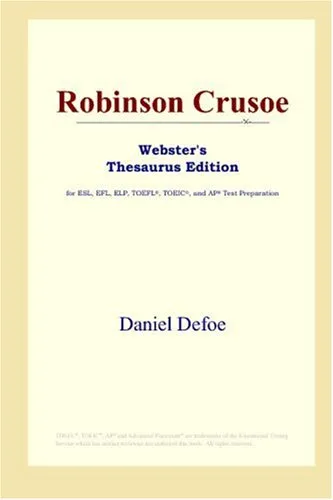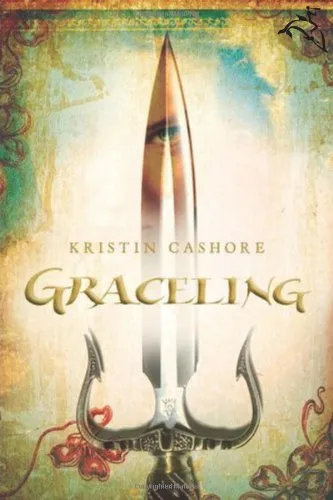Classics - Robinson Crusoe
4.3
بر اساس نظر کاربران

شما میتونید سوالاتتون در باره کتاب رو از هوش مصنوعیش بعد از ورود بپرسید
هر دانلود یا پرسش از هوش مصنوعی 2 امتیاز لازم دارد، برای بدست آوردن امتیاز رایگان، به صفحه ی راهنمای امتیازات سر بزنید و یک سری کار ارزشمند انجام بدینکتاب های مرتبط:
Welcome to the world of 'Robinson Crusoe,' a timeless classic that has captivated readers for centuries. Written by Daniel Defoe and first published in 1719, this novel is often considered one of the earliest examples of the novel as a literary form. It tells the compelling tale of survival, exploration, and human spirit. Defoe’s work not only entertains but also provides profound insights into human nature and society. This introduction aims to guide you through the various aspects of the book that make it a must-read.
Summary of the Book
'Robinson Crusoe' is a tale of adventure that begins with the protagonist, Robinson Crusoe, defying his parents’ wishes by embarking on a series of ocean voyages. Caught in a storm, Crusoe finds himself shipwrecked on a deserted island. With no immediate hope of rescue, he must learn how to survive alone, armed with his ingenuity, resilience, and the limited supplies salvaged from the wrecked ship.
Crusoe spends 28 years on the island, during which he undergoes tremendous personal transformation. He learns to tend to the land, build shelter, and tame animals. The solitude compels him to reflect on his life, leading to spiritual awakening and self-sufficiency. The narrative takes a turn when Crusoe discovers a footprint in the sand, eventually leading to his encounter with Friday, a native man he saves from cannibals. Their relationship introduces themes of friendship, colonialism, and cultural interaction.
The story ultimately ends with Crusoe being rescued and returning to England, enriched by his experiences and newfound wisdom. The novel is as much about the physical journey of survival as it is about the inner journey of personal growth and understanding.
Key Takeaways
- Survival: The novel underscores the importance of resourcefulness, adaptability, and perseverance in the face of adversity.
- Self-Reliance: Crusoe's experiences emphasize the value of independence and self-sufficiency.
- Human Resilience: Defoe's narrative illustrates the power of the human spirit to endure and overcome life's challenges.
- Cultural Reflections: The book offers insights into 18th-century European perceptions of other cultures and colonialism.
- Spiritual Growth: Crusoe's isolation prompts profound spiritual and existential reflections leading to personal transformation.
Famous Quotes from the Book
"It is never too late to be wise."
"Thus fear of danger is ten thousand times more terrifying than danger itself."
Why This Book Matters
'Robinson Crusoe' holds a significant place in literary history due to its pioneering form and enduring thematic exploration. The novel was one of the first to employ a detailed narrative structure centered on a single character's development, influencing countless genres including adventure and survival stories. Its exploration of themes like isolation, self-reliance, and personal redemption resonates with readers across different eras and cultures.
The novel also sparks critical discussion about colonialism and imperialism, inviting readers to reflect on the legacies of European expansion into the Americas. Moreover, its rich descriptions and psychological depth continue to provide valuable material for philosophical and ethical considerations.
'Robinson Crusoe' remains a relevant and thought-provoking work that challenges its audience to ponder the complexities of human experience, making it a timeless masterpiece.
دانلود رایگان مستقیم
شما میتونید سوالاتتون در باره کتاب رو از هوش مصنوعیش بعد از ورود بپرسید
دسترسی به کتابها از طریق پلتفرمهای قانونی و کتابخانههای عمومی نه تنها از حقوق نویسندگان و ناشران حمایت میکند، بلکه به پایداری فرهنگ کتابخوانی نیز کمک میرساند. پیش از دانلود، لحظهای به بررسی این گزینهها فکر کنید.
این کتاب رو در پلتفرم های دیگه ببینید
WorldCat به شما کمک میکنه تا کتاب ها رو در کتابخانه های سراسر دنیا پیدا کنید
امتیازها، نظرات تخصصی و صحبت ها درباره کتاب را در Goodreads ببینید
کتابهای کمیاب یا دست دوم را در AbeBooks پیدا کنید و بخرید
1544
بازدید4.3
امتیاز0
نظر98%
رضایتنظرات:
4.3
بر اساس 0 نظر کاربران
Questions & Answers
Ask questions about this book or help others by answering
No questions yet. Be the first to ask!
